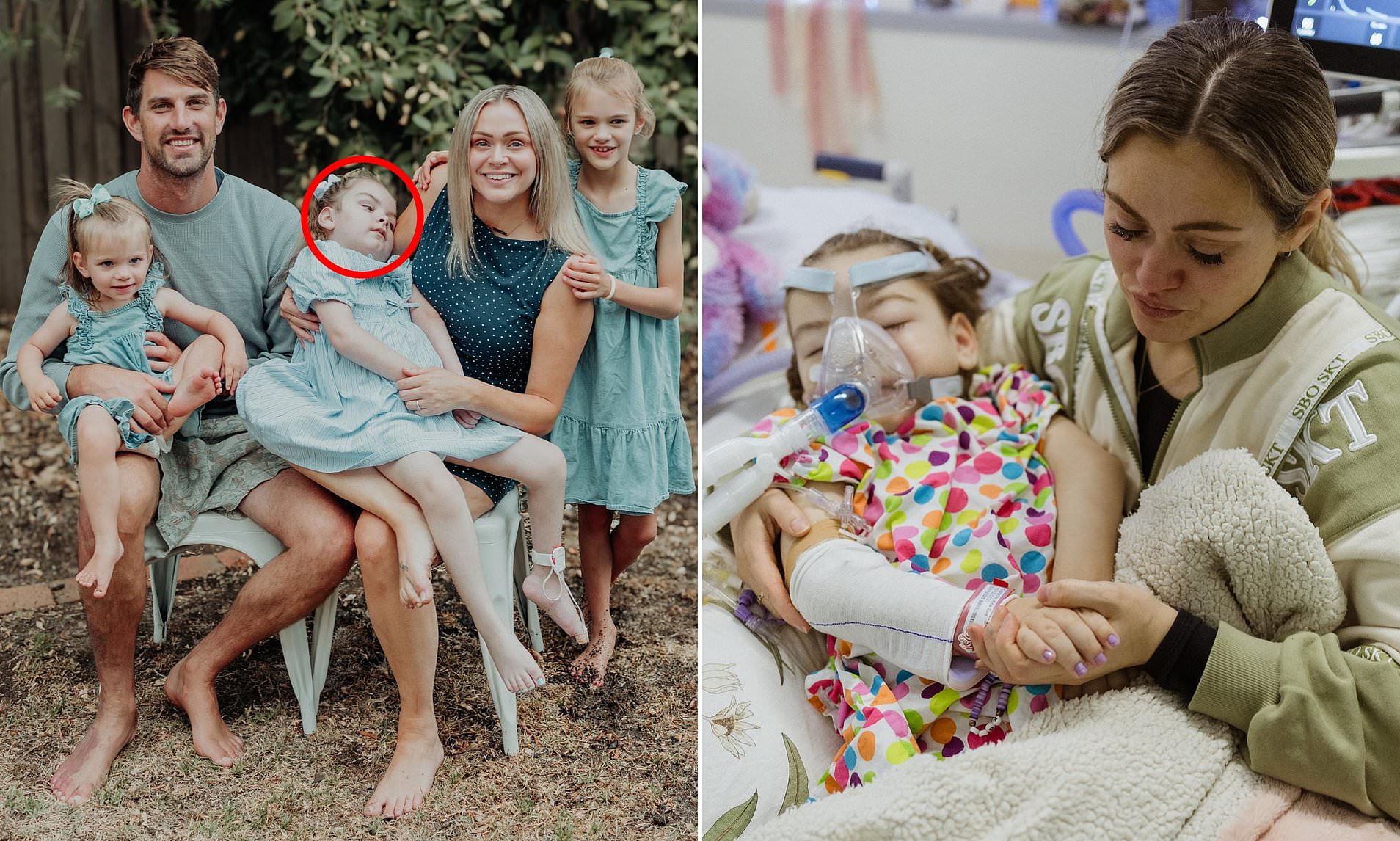
Tragedy and Tribulation: Mother Blames National Disability Insurance Scheme (NDIS) for Daughter's Death
The death of a four-year-old girl, Koa, has sparked outrage and accusations of neglect against Australia's National Disability Insurance Scheme (NDIS). Koa, who suffered from a rare and incurable neurological condition called Lissencephaly, died alone in a hospital ward after contracting influenza and choking on her own vomit. Her mother, Aleisha Gibson, believes that inadequate support from the NDIS, characterized by funding cuts and bureaucratic indifference, directly contributed to her daughter's tragic passing.
A Life Marked by Challenges
Koa, affectionately known as "Koko," was diagnosed with Lissencephaly at just five weeks old. This condition is known to cause severe intellectual and developmental delays, often accompanied by epilepsy, cerebral palsy, and other neurological complications. Sadly, many children diagnosed with Lissencephaly do not survive beyond the age of ten.
Gibson described the uphill battle she faced in securing appropriate care for Koa through the NDIS. She claims the government service failed to adequately acknowledge the severity of Koa's disabilities. One pediatrician even stated that if Koa did not warrant full-time professional care, no child in Australia would.
Navigating Bureaucratic Hurdles
Gibson recounted the constant "pushback" she encountered when seeking assistance for Koa. Despite providing extensive evidence of her daughter's disabilities and numerous supporting letters from medical professionals, securing adequate funding and support proved to be an ongoing struggle.
As Koa grew older, her condition worsened, revealing the full extent of her associated disabilities. She experienced precocious puberty, causing her body to double in size within a mere three months. This rapid growth necessitated a higher level of care than what was initially allocated in her 12-month NDIS plan. Symptoms of cerebral palsy, scoliosis, and respiratory issues became increasingly apparent, further highlighting the need for increased support.
Gibson claims that the NDIS failed to recognize the evolving needs of her daughter, evaluating her as a two-year-old when her physical condition resembled that of a child several years older. She estimates submitting 15 to 20 letters from professionals, all emphasizing Koa's need for more comprehensive assistance.
Changes to Funding Allocation
Compounding the family's struggles, the NDIS implemented changes to its funding allocation process in May. Under the revised system, participants receive funding in three-month blocks instead of accessing their full 12-month allocation at once. In Koa’s case, her 150-hour nursing allocation translated to less than three hours per week, a far cry from the level of care she desperately required.
Gibson pleaded with the NDIS to consider the supporting evidence provided by medical professionals, but her requests were consistently overruled. Despite Koa's reliance on oxygen 24/7, a BIPAP ventilator, frequent seizures, and a complex medication regimen, the NDIS remained inflexible in its funding allocation.
The Toll on a Mother's Wellbeing
The immense responsibility of caring for Koa largely fell on Gibson, who described feeling overwhelmed and isolated. She felt she was performing the duties of a doctor, nurse, and ICU worker, all within the confines of her own home. The strain on her mental health was immense, leading her to express feelings of hopelessness and despair. Despite communicating her distress to the NDIS, she claims no additional support was offered.
Desperate to ensure Koa's well-being during the approaching winter months, Gibson requested the release of the remaining funds from Koa's allocation. She even proposed a negotiation, suggesting that the full funding be released in lieu of securing 24/7 nursing care. However, the NDIS denied her request, even though other cases of leniency had been reported.
The Final Tragedy
In June, Gibson contracted influenza, placing Koa at grave risk. Knowing the potentially fatal consequences for her daughter, nurses volunteered their time to help care for Koa. Despite these efforts, Koa contracted the flu and was rushed to the hospital on July 7.
On July 10, while alone in the hospital ward, Koa vomited medication into her respiration mask, a known risk associated with her condition that requires immediate suctioning. Tragically, she began to choke on her own vomit and was pronounced dead the following day.
Seeking Accountability
Gibson is devastated by the loss of her daughter and believes the NDIS failed to provide the necessary support to ensure Koa's well-being. She feels that Koa and her family were robbed of their dignity and that the NDIS could have made their lives easier and granted them more quality time together.
Gibson is now advocating for accountability from the NDIS, urging them to lift funding blocks for other Australians in similar situations. She believes that the NDIS needs to engage directly with the disability community and ensure that their policies reflect the realities faced by individuals with disabilities and their families. She suggests that even those in the most administrative roles within the NDIS should be required to interact with the people impacted by their decisions.
NDIS Response
In a statement, an NDIS spokesman extended condolences to the Gibson family. The statement emphasized that the NDIS provides disability-related supports designed to complement, not replace, mainstream services such as the health system. The NDIS claims to work collaboratively with state and territory health services to ensure participants receive the appropriate mix of disability and health care supports, based on individual circumstances. The statement also asserted that the NDIS assesses all relevant information received from participants and allied health teams when making decisions in accordance with the NDIS Act.


No comments:
Post a Comment